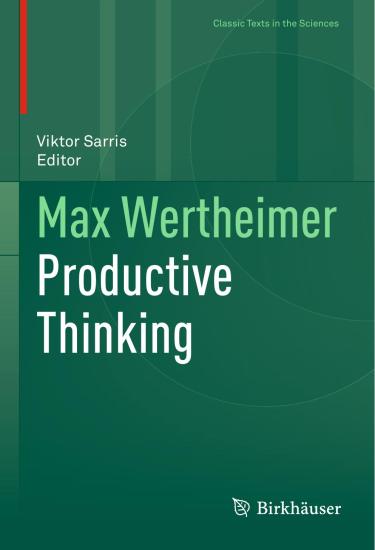
Rating: Not rated
Tags: Science, History, Psychology, Cognitive Psychology & Cognition, General, Lang:en
Publisher: Springer Nature
Added: August 9, 2020
Modified: November 5, 2021
Summary
Max Wertheimer (1880-1943), a pioneer of 20th-century
psychology, had a major influence on the development of
cognitive psychology, especially the psychology of perception
and of productive thinking. His work "Productive Thinking"
(1945), written in New York, is regarded as a milestone in
creativity research. Consisting of many examples of creative
thought processes - from geometric tasks to
socio-psychologically relevant conflict resolutions to the
development of Einstein's theory of relativity - the book
leads the reader through a multi-faceted body of thought in
the psychology of thinking. Only a few texts in psychology
have remained significant even after a period of three
quarters of a century - Max Wertheimer's Productive Thinking
is such an exception. This book, which also presents an
exposition of Gestalt psychology, highlights the "productive"
(insightful) versus automatic (unreflected) thought processes
for many areas of life. In addition to examples from school
teaching, the chapter on the emergence of Albert Einstein's
theory of relativity is of lasting interest to today's
generation of psychologists, pedagogues, brain researchers,
neuroscientists and philosophers. Wertheimer had the unique
opportunity to analyze Einstein's thinking in direct
conversation. An introductory commentary by Viktor Sarris for
this new edition of the first publication of Productive
Thinking in 1945 offers a detailed account of the genesis and
reception of Wertheimer's work.